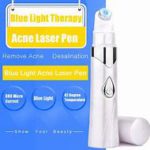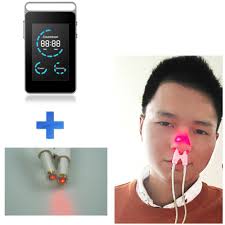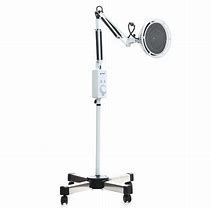Last Updated on 3 months by Francis
Eating disorders are serious medical illnesses that can have devastating consequences. It is crucial to emphasize that promoting or encouraging eating disorders is not recommended or supported. Pro ana foods, however, refer to the foods that individuals with eating disorders may choose to consume. This article aims to provide information on healthy choices and tips for individuals looking to make better nutritional decisions for their overall well-being and lifestyle needs.
- Pro ana foods are foods that individuals with eating disorders may choose to consume. However, promoting or encouraging eating disorders is not recommended.
- This article provides information on healthy choices and tips for individuals looking to make better nutritional decisions.
- It is important to prioritize both physical and mental health when making dietary choices for overall well-being.
- Seeking professional help is crucial for individuals struggling with eating disorders. Early intervention and the right treatment approach can lead to recovery.
- Self-help techniques can complement professional treatment, but they should be approached with guidance from healthcare professionals.
Contents
Understanding Eating Disorders

Eating disorders are marked by severe disturbances in eating behaviors. They can have a profound impact on a person’s physical and mental health and should not be underestimated. Developing an understanding of eating disorders is crucial in order to recognize the risks and seek appropriate help.
Several factors contribute to the development of eating disorders, including:
- Genetic predisposition
- Biological factors
- Behavioral patterns
- Psychological factors
- Social influences
It is important to note that these factors can vary from person to person, and each individual’s experience with an eating disorder is unique.
Common Types of Eating Disorders
There are several common types of eating disorders, each with its own set of symptoms and challenges. These include:
- Anorexia Nervosa: Anorexia nervosa is characterized by an intense fear of gaining weight, leading to severe restrictions in food intake and extreme thinness.
- Bulimia Nervosa: Bulimia nervosa involves cycles of binge-eating, followed by compensatory behaviors such as self-induced vomiting or excessive exercise.
- Binge-Eating Disorder: Binge-eating disorder is characterized by recurrent episodes of consuming large amounts of food without purging or compensatory behaviors.
- Avoidant Restrictive Food Intake Disorder (ARFID): ARFID is characterized by the avoidance or restriction of certain foods or food groups, resulting in inadequate nutrition and weight loss.
Each type of eating disorder requires proper evaluation and diagnosis by a qualified healthcare provider. It is essential to seek professional help to understand and address the specific challenges associated with each type.
| Eating Disorder | Description |
|---|---|
| Anorexia Nervosa | Characterized by severe food restriction and a distorted body image, leading to extreme weight loss and potentially life-threatening consequences. |
| Bulimia Nervosa | Involves recurrent episodes of binge-eating followed by compensatory behaviors such as vomiting, excessive exercise, or fasting. |
| Binge-Eating Disorder | Characterized by frequent episodes of consuming large quantities of food without compensatory behaviors, leading to feelings of guilt, shame, and loss of control. |
| Avoidant Restrictive Food Intake Disorder (ARFID) | Individuals with ARFID have limited food preferences, avoiding certain foods or food groups, resulting in nutritional deficiencies and significant distress. |
Understanding the different types of eating disorders is an important step in addressing this complex issue. Recognizing the signs and symptoms can help individuals seek appropriate treatment and support for recovery.
Anorexia Nervosa: Symptoms and Health Consequences

Anorexia nervosa is a serious eating disorder characterized by severe food restriction, resulting in extreme thinness and a distorted self-image. Individuals with anorexia nervosa have a relentless desire to lose weight, often leading to dangerous behaviors and adverse health effects.
Common symptoms of anorexia nervosa include:
- Restricted eating: Individuals severely limit their food intake, often avoiding entire food groups and consuming very few calories.
- Excessive exercise: People with anorexia nervosa engage in intense physical activity to burn calories and maintain weight loss.
- Intense fear of gaining weight: An overwhelming fear of gaining even small amounts of weight, despite being underweight.
- Denial of low body weight: Individuals with anorexia nervosa may deny or underestimate the seriousness of their low body weight and its impact on their health.
If left untreated, anorexia nervosa can have severe health consequences:
- Thinning of bones: Prolonged nutritional deficiencies can lead to osteoporosis, increasing the risk of fractures and bone injuries.
- Muscle wasting: Inadequate intake of protein and nutrients can cause muscle loss, weakening the body.
- Low blood pressure: Malnutrition can lead to low blood pressure, which can cause dizziness, fainting, and heart complications.
- Infertility: Anorexia nervosa can disrupt hormone levels, leading to irregular menstrual cycles and infertility in females.
- Organ failure: Severe malnutrition and weight loss can damage vital organs such as the heart, liver, and kidneys, potentially leading to organ failure.
Seeking treatment for anorexia nervosa is crucial to address both the physical and psychological aspects of the disorder and prevent further complications. Early intervention can improve the chances of recovery and restore overall health and well-being.
Note: The image above depicts the severity and physical consequences of anorexia nervosa, highlighting the importance of seeking professional help and treatment.
Bulimia Nervosa: Symptoms and Health Consequences

Bulimia nervosa is a serious eating disorder characterized by recurrent episodes of binge-eating followed by behaviors aimed at compensating for the overeating, such as self-induced vomiting or excessive exercise. This disorder affects both physical and mental health, and seeking treatment is crucial for recovery.
Individuals with bulimia nervosa often experience symptoms such as:
- Overeating: Consuming large amounts of food in a short period of time, often feeling out of control.
- Excessive exercise: Engaging in vigorous physical activity to counteract the calories consumed during a binge.
- Lack of control over eating: Feeling unable to stop or control the amount of food consumed during a binge.
If left untreated, bulimia nervosa can have severe health consequences. Some of the health risks associated with bulimia nervosa include:
| Health Consequences of Bulimia Nervosa |
|---|
| Chronic throat inflammation |
| Dental problems, such as tooth decay and enamel erosion |
| Electrolyte imbalances |
| Intestinal distress |
| Potassium deficiency |
It is important to emphasize that timely treatment for bulimia nervosa is essential to prevent further damage to one’s health. If you or someone you know is struggling with symptoms of bulimia nervosa, it is crucial to seek help from a qualified healthcare provider to initiate the recovery process.
Binge-Eating Disorder: Symptoms and Treatment

Binge-eating disorder is a serious eating disorder characterized by recurring episodes of compulsive overeating, during which an individual consumes large amounts of food uncontrollably. Unlike other eating disorders, such as bulimia nervosa, individuals with binge-eating disorder do not engage in purging behaviors, such as self-induced vomiting or excessive exercise.
The symptoms of binge-eating disorder can vary but often include:
- Rapid eating without feeling physically hungry
- Eating large amounts of food even when not physically hungry
- Lack of control over eating
- Feelings of distress or guilt after binge-eating episodes
Binge-eating disorder is closely associated with being overweight or obese. The shame and guilt experienced after binge-eating episodes can create a vicious cycle, further exacerbating the disorder.
It is important to seek help if you suspect that you or someone you know may have binge-eating disorder. Treatment options for binge-eating disorder can include:
- Therapy: Cognitive-behavioral therapy (CBT) can help identify and change negative thoughts and behaviors related to binge-eating. Interpersonal therapy (IPT) and dialectical behavior therapy (DBT) may also be effective in addressing underlying emotional issues.
- Support groups: Joining support groups can provide a sense of community and understanding, as well as valuable coping strategies.
- Developing healthy coping mechanisms: Learning alternative ways to manage stress and emotions can help reduce the reliance on binge-eating as a coping mechanism. This may include engaging in pleasurable activities, practicing mindfulness, or seeking social support.
With the right treatment and support, individuals with binge-eating disorder can regain control of their eating behaviors and improve their overall well-being. It is crucial to reach out to healthcare professionals who specialize in eating disorders to receive an accurate diagnosis and develop an individualized treatment plan.
Remember: Seeking help is a courageous step towards recovery. You are not alone in your journey to overcome binge-eating disorder.
Avoidant Restrictive Food Intake Disorder (ARFID): Symptoms and Management

Avoidant Restrictive Food Intake Disorder (ARFID), formerly known as selective eating disorder, is a condition characterized by the limited amount or type of food individuals consume. Unlike anorexia nervosa, individuals with ARFID do not have a distorted body image or fear of gaining weight. Instead, ARFID is primarily driven by sensory sensitivity, lack of interest in food, or a perceived aversion towards specific tastes, textures, or smells.
Common symptoms of ARFID include:
- Significant restriction in food intake
- Weight loss or failure to achieve appropriate weight gain in children
- Gastrointestinal issues, such as abdominal pain or bloating
ARFID is most commonly observed in children, but it can also affect individuals of any age. It is essential to seek medical intervention for ARFID to address inadequate calorie intake and potential nutritional deficiencies.
Symptoms of ARFID
| Symptoms | Explanation |
|---|---|
| Restricted food intake | Individuals limit the amount or type of food they eat, resulting in inadequate calorie intake and nutrition. |
| Weight loss or failure to gain appropriate weight (in children) | ARFID can lead to significant weight loss or hinder the growth and development of children. |
| Gastrointestinal issues | ARFID may cause abdominal pain, bloating, or other digestive problems due to the limited variety of foods consumed. |
Management of ARFID typically involves a multidisciplinary approach, including:
- Medical intervention: Healthcare professionals assess the individual’s nutritional needs and provide appropriate nutritional counseling to ensure adequate calorie intake and essential nutrients.
- Behavioral therapy: Psychotherapy techniques, such as cognitive-behavioral therapy (CBT) or exposure-based therapies, can help individuals with ARFID expand their food repertoire and overcome aversions or sensitivities.
- Occupational therapy: Occupational therapists may assist in improving sensory sensitivities and providing strategies to manage aversions towards certain food textures or smells.
It is crucial for individuals with ARFID to receive proper support and guidance from healthcare professionals to address their unique challenges and ensure adequate nutrition for optimal health and well-being.
Treating Eating Disorders

Eating disorders can be successfully treated with early detection and intervention. The key to effective treatment is addressing the physical, psychological, and emotional aspects of the disorder. Treatment plans for eating disorders often involve a combination of therapies and approaches tailored to the individual’s needs and circumstances.
Psychotherapy, also known as talk therapy, is a crucial component of treatment for eating disorders. It helps individuals develop a healthier relationship with food and their body, identify and address underlying issues, and learn coping skills to manage their emotions and behaviors. Therapies such as cognitive-behavioral therapy (CBT), dialectical behavior therapy (DBT), and family-based therapy are commonly used in the treatment of eating disorders.
In addition to psychotherapy, medical care is essential for the comprehensive treatment of eating disorders. Medical professionals monitor the individual’s physical health, address any complications, and ensure a safe and supportive environment for recovery. Nutritional counseling is also a vital part of treatment, as it focuses on restoring adequate nutrition and establishing a balanced and sustainable eating pattern.
Medications may also be prescribed as part of the treatment plan for eating disorders. While medication is not a standalone treatment for eating disorders, it can help manage co-existing mental health conditions such as depression, anxiety, or obsessive-compulsive disorder, which often accompany eating disorders. Medications are typically used in conjunction with therapy and other interventions.
Family involvement plays a significant role in the treatment of eating disorders, particularly for adolescent patients. Involving the family in therapy sessions and providing education and support to family members can improve outcomes and create a supportive environment for recovery.
| Treatment Approaches | Description |
|---|---|
| Psychotherapy | Therapy sessions to address underlying issues, develop healthy coping skills, and establish a healthier relationship with food and body. |
| Medical Care | Monitoring physical health, addressing complications, and providing a safe and supportive environment for recovery. |
| Nutritional Counseling | Restoring adequate nutrition, establishing a balanced eating pattern, and educating individuals about healthy eating habits. |
| Medications | Prescription medications to manage co-existing mental health conditions and support the overall treatment plan. |
| Family Involvement | Involving the family in therapy sessions, providing education and support to family members, and creating a supportive environment for recovery. |
Seeking Help for Eating Disorders

If you or someone you know is struggling with an eating disorder, it is crucial to seek help from a qualified healthcare provider. They can provide a proper evaluation and refer you to specialists who have experience in treating eating disorders. Remember, you don’t have to face this challenge alone. There are resources available to support you on your journey to recovery.
Here are some steps you can take to find the help you need:
1. Reach out to a healthcare provider
Contact your primary care physician, a psychologist, or a psychiatrist to discuss your concerns. They can provide an initial assessment, diagnose the eating disorder, and guide you towards appropriate treatment options.
2. Find specialists experienced in eating disorder treatment
Ask your healthcare provider for recommendations or search for specialized treatment centers or clinics that focus on eating disorder recovery. These professionals will have the experience and expertise needed to develop personalized treatment plans tailored to your specific needs.
3. Utilize helplines and support groups
There are helplines and support groups available that can offer guidance, understanding, and encouragement throughout your recovery journey. They provide a safe space to connect with others who have experienced similar challenges and can share valuable insights and coping strategies.
Helpline for Eating Disorders: You can call the helpline at [insert helpline number] to speak with trained professionals who can provide support, information, and resources.
4. Involve your loved ones
Eating disorders not only impact the individual but also their loved ones. Openly communicate with trusted family members and friends about your struggles, and encourage their involvement in your recovery process. Their support and understanding can make a significant difference in your journey to wellness.
5. Educate yourself about eating disorders
Learn about the signs, symptoms, and treatment options for eating disorders. This knowledge will empower you to make informed decisions, understand the recovery process, and effectively communicate with healthcare providers.
No matter how challenging it may seem, seeking help is a crucial step towards recovery. Remember that you are not alone, and with the support of healthcare professionals, you can overcome an eating disorder and regain control of your life.
The Role of Self-Help in Recovery
Self-help can play a beneficial role in the recovery process for individuals with anorexia nervosa. By engaging in self-directed activities, individuals can better understand, assess, and treat their symptoms. While professional treatment is crucial, self-help options can complement and enhance the recovery journey. Here are some tips for anorexia self-help:
- Educate yourself: Read books or online resources that provide valuable information on anorexia nervosa self-help techniques, coping strategies, and recovery stories.
- Join support groups: Connecting with others who have similar experiences can provide a sense of belonging, understanding, and encouragement. Support groups can be in-person or online, offering a safe space for sharing and learning from one another.
- Practice self-care: Prioritize self-care activities that promote physical, mental, and emotional well-being. This can include engaging in relaxation techniques, such as deep breathing exercises or mindfulness meditation, and participating in activities that bring joy and relaxation.
- Consider online or in-person courses: Look for courses or workshops specifically designed for anorexia self-help. These resources may provide structured guidance and teach valuable skills for managing symptoms and building resilience.
“Self-help is not a substitute for professional treatment, but it can complement and enhance the recovery journey.”
Remember, while self-help can be empowering, it is important to approach it with the guidance and support of healthcare professionals. By combining self-help techniques with evidence-based treatment, individuals with anorexia nervosa can optimize their chances of recovery and regain a fulfilling and healthy life.
| Benefits of Self-Help in Recovery | Tips for Anorexia Self-Help |
|---|---|
|
|
Effective Anorexia Nervosa Self-Help Techniques
Anorexia nervosa self-help techniques can be powerful tools when used in conjunction with a comprehensive treatment plan. These techniques empower individuals with anorexia nervosa to actively participate in their own recovery and facilitate positive changes in their lives. Here are some self-help tips that can contribute to the healing process:
- Set Beneficial Goals: Establish realistic and attainable goals related to your recovery journey. These goals can encompass various aspects, such as improving body image perception, adopting healthier eating habits, or engaging in self-care activities.
- Seek Support: Surround yourself with a strong support system consisting of understanding friends, family members, or professionals who specialize in eating disorders. Their encouragement, guidance, and empathy can help you navigate the challenges you may encounter.
- Focus on Moderation: Rather than rigidly adhering to strict eating or exercise habits, aim for balance and moderation. Embrace a sustainable approach that allows flexibility, enjoyment, and nourishment for both your body and mind.
- Change Self-Talk: Challenge and replace negative self-talk with positive affirmations and self-compassionate statements. Practice self-kindness, acknowledging your progress and embracing self-acceptance along your journey to recovery.
- Add Enjoyable Activities: Engage in activities that bring joy, fulfillment, and a sense of purpose to your life. This can include hobbies, creative outlets, physical activities, or spending time with loved ones.
Remember, it is imperative to consult with an eating disorder expert to ensure that these self-help techniques are suitable for your specific symptoms and circumstances. They should be implemented in conjunction with professional guidance to optimize their effectiveness and promote your overall wellbeing.
If you or someone you know is struggling with anorexia nervosa, professional help and support are essential. However, incorporating self-help techniques can enhance the recovery process and empower individuals on their path to healing.
| Treatment Options | Benefits | Considerations |
|---|---|---|
| Individual Psychotherapy | – Provides personalized support and guidance – Helps address underlying emotional issues |
– Requires consistent attendance and engagement – May take time to see measurable progress |
| Support Groups | – Offers a sense of community and understanding – Allows for shared experiences and advice |
– Not a substitute for individual therapy – Group dynamics may not suit everyone |
| Nutritional Counseling | – Provides education on balanced eating habits – Helps establish a healthy relationship with food |
– Requires openness and willingness to change – Nutritional support can be challenging at first |
| Medications | – May assist in managing co-occurring conditions – Can alleviate symptoms such as anxiety or depression |
– Should be prescribed and monitored by a healthcare professional – Potential for side effects and interactions |
Remember, treatment options may vary depending on individual circumstances, and a comprehensive approach tailored to your specific needs is crucial for recovery.
Conclusion
Eating disorders are serious conditions that require professional help and support. It is important to prioritize both physical and mental health when seeking help for an eating disorder. Recovery is possible with early intervention and the right treatment approach.
While self-help can play a role in the recovery process, it should always be approached with guidance from healthcare professionals. Self-help options such as books, support groups, and self-care practices can complement professional treatment and enhance the overall recovery journey.
Remember that you are not alone in your struggle. There are resources available to support you on your journey to recovery. Reach out to qualified healthcare providers for proper evaluation and treatment referral. Additionally, helplines and support groups can provide additional assistance and a sense of community. Prioritizing your well-being and seeking professional help is crucial for a healthier and happier life.
FAQ
What are pro ana foods?
Pro ana foods refer to the foods that individuals with eating disorders may choose to consume. It is important to note that promoting or encouraging eating disorders is not recommended or supported.
What are the risks of eating disorders?
Eating disorders are serious medical illnesses that can be life-threatening. They can affect people of all ages, backgrounds, and genders. Risk factors for developing eating disorders include genetic, biological, behavioral, psychological, and social factors.
What are the common types of eating disorders?
Common types of eating disorders include anorexia nervosa, bulimia nervosa, binge-eating disorder, and avoidant restrictive food intake disorder. Each type is associated with different symptoms and should be evaluated by a healthcare provider.
What are the symptoms of anorexia nervosa?
Symptoms of anorexia nervosa include restricted eating, excessive exercise, intense fear of gaining weight, and denial of low body weight. Treatment for anorexia nervosa is crucial to prevent serious health consequences.
What are the health consequences of anorexia nervosa?
If left untreated, anorexia nervosa can lead to serious health consequences such as thinning of bones, muscle wasting, low blood pressure, infertility, and organ failure.
What are the symptoms of bulimia nervosa?
Symptoms of bulimia nervosa include overeating, excessive exercise, and a lack of control over eating. Seeking treatment for bulimia nervosa is essential to prevent further damage to one’s health.
What are the health consequences of bulimia nervosa?
Health consequences of bulimia nervosa include chronic throat inflammation, dental problems, electrolyte imbalances, and intestinal distress.
What are the symptoms of binge-eating disorder?
Symptoms of binge-eating disorder include rapid eating, eating even when full, and feelings of distress or guilt after eating. Treatment may include therapy, support groups, and developing healthy coping mechanisms.
What is avoidant restrictive food intake disorder (ARFID)?
Avoidant restrictive food intake disorder, formerly known as selective eating disorder, is a condition where individuals limit the amount or type of food they eat. Symptoms of ARFID include restricted food intake, weight loss, and gastrointestinal issues.
How are eating disorders treated?
Treatment plans for eating disorders may include psychotherapy, medical care, nutritional counseling, medications, or a combination of approaches. The goals of treatment are to restore adequate nutrition, achieve a healthy weight, reduce disordered eating behaviors, and address underlying mental health issues.
How can I seek help for an eating disorder?
If you or someone you know is struggling with an eating disorder, it is important to seek help from a qualified healthcare provider. They can provide a proper evaluation and refer you to specialists who have experience in treating eating disorders.
What is the role of self-help in eating disorder recovery?
Self-help can play a beneficial role in the recovery process for individuals with eating disorders. It involves understanding, assessing, and treating symptoms with guided or self-directed activities. Self-help options can include books, support groups, self-care practices, and online or in-person courses.
What are effective self-help techniques for anorexia nervosa?
Effective anorexia nervosa self-help techniques can include setting beneficial goals, seeking support, focusing on moderation instead of strict habits, changing self-talk, and adding enjoyable activities to daily routines.
Is recovery possible for eating disorders?
Yes, recovery is possible with early intervention and the right treatment approach. It is important to prioritize both physical and mental health when seeking help for an eating disorder. Remember that you are not alone, and there are resources available to support you on your journey to recovery.









